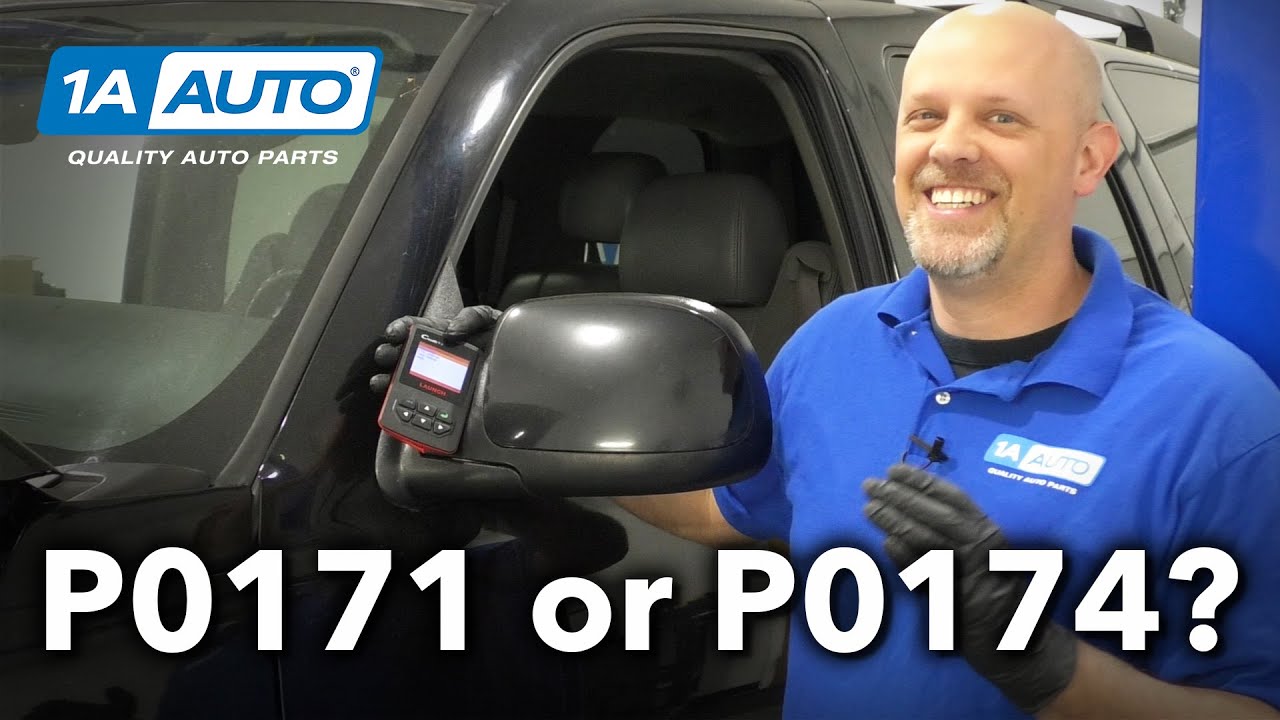Troubleshooting the PO174 Code in Ford Cars

Welcome to Club Chevy, your ultimate destination for all things Chevy model cars and car mechanics. In today's article, we will be diving into the intricacies of the P0174 code in Ford vehicles. The P0174 code is an indication of a lean condition in the engine's bank 2, meaning there is too much air and not enough fuel being delivered. Join us as we explore the potential causes, symptoms, and solutions for this common issue. Stay tuned for expert tips and insights to keep your Chevy running smoothly!
- What is the P0174 code in a Ford?
- Common causes of the P0174 code
- How to diagnose and fix the P0174 code
-
Frequently Asked Questions from Car Fans
- What does the P0174 code mean in a Ford vehicle?
- How can I diagnose and fix a P0174 code in my Chevy model car?
- Are there any common causes of the P0174 code in Chevy vehicles?
- Can a faulty oxygen sensor trigger the P0174 code in a Chevy car?
- Is it safe to drive my Chevy car with a P0174 code, or should I have it repaired immediately?
What is the P0174 code in a Ford?
The P0174 code in a Ford refers to a fuel system lean condition on bank 2. This means that the engine is receiving too much air and not enough fuel, leading to an imbalance in the air-fuel ratio. It is important to address this issue promptly as it can cause damage to the engine if left unresolved.
Common causes of the P0174 code
1. Vacuum leaks: One common cause of the P0174 code is vacuum leaks in the intake manifold or hoses. These leaks can allow unmetered air to enter the engine, causing a lean condition.
2. Faulty oxygen sensor: A malfunctioning oxygen sensor can provide incorrect readings, leading to a lean fuel mixture. Bank 2 refers to the side of the engine opposite to the cylinder number 1.
3. Dirty or clogged fuel injectors: If the fuel injectors are dirty or clogged, they may not be delivering the proper amount of fuel to the engine, resulting in a lean condition.
4. Malfunctioning mass airflow sensor (MAF): The MAF sensor measures the amount of air entering the engine and provides this information to the engine control module (ECM). If the MAF sensor is faulty or dirty, it can cause the ECM to incorrectly calculate the air-fuel mixture.
How to diagnose and fix the P0174 code
1. Inspect for vacuum leaks: Thoroughly inspect the intake manifold and hoses for any signs of cracks, loose connections, or damaged gaskets. Repair or replace any components as necessary.
2. Check the oxygen sensor: Test the oxygen sensor using a multimeter or scan tool to ensure it is functioning properly. Replace any faulty sensors.
3. Clean or replace fuel injectors: If the fuel injectors are dirty or clogged, clean them using a specialized injector cleaner. If cleaning does not resolve the issue, consider replacing the injectors.
4. Clean or replace the MAF sensor: Clean the MAF sensor using a specific MAF cleaner to remove any dirt or debris. If cleaning does not solve the problem, replace the sensor.
It is recommended to consult a professional mechanic or utilize diagnostic tools for accurate diagnosis and repair of the P0174 code. Ignoring this issue can lead to further engine damage and reduced performance.
Frequently Asked Questions from Car Fans
What does the P0174 code mean in a Ford vehicle?
The P0174 code in a Ford vehicle indicates a "System Too Lean (Bank 2)" condition.
How can I diagnose and fix a P0174 code in my Chevy model car?
The P0174 code in your Chevy model car indicates a problem with the fuel system running too lean. To diagnose and fix this issue, you can start by checking for vacuum leaks, inspecting the fuel pressure, and cleaning or replacing the mass air flow sensor. Additionally, you may need to examine the oxygen sensors and replace them if necessary. Seeking professional help from a qualified mechanic is also recommended for a thorough diagnosis and repair.
Are there any common causes of the P0174 code in Chevy vehicles?
Yes, there are common causes of the P0174 code in Chevy vehicles. Some of the most frequent reasons include a vacuum leak, faulty oxygen sensors, fuel pressure issues, or a clogged fuel injector.
Can a faulty oxygen sensor trigger the P0174 code in a Chevy car?
Yes, a faulty oxygen sensor can trigger the P0174 code in a Chevy car.
Is it safe to drive my Chevy car with a P0174 code, or should I have it repaired immediately?
It is not safe to drive your Chevy car with a P0174 code. This code indicates a problem with the fuel system, specifically an issue with the fuel trim being too lean. Driving with this code can lead to engine misfires, reduced power, and potential damage to the catalytic converter. It is recommended to have it repaired immediately by a qualified mechanic.
In conclusion, the P0174 code in Ford vehicles is a common issue that can affect the performance of Chevy model cars. This code indicates a lean condition in Bank 2 of the engine, which could be caused by a variety of factors such as a faulty oxygen sensor, vacuum leaks, or a clogged fuel injector. It is important for car mechanics to diagnose and address this issue promptly to prevent further damage to the engine. By utilizing diagnostic tools and expertise in car mechanics, professionals can accurately identify the root cause and provide the necessary repairs. Remember, addressing the P0174 code promptly ensures optimal performance and longevity of your Chevy model car. Stay tuned to our magazine for more informative articles on car maintenance and repair!

If you want to know other articles similar to Troubleshooting the PO174 Code in Ford Cars you can visit the category Automotive Mechanics.
